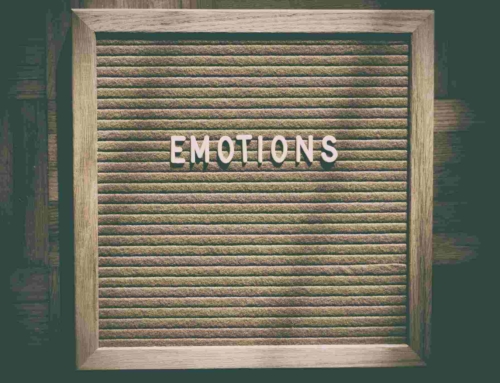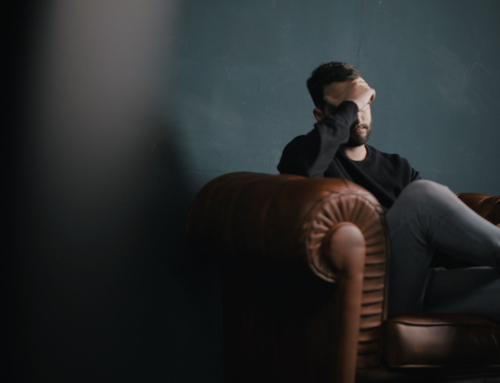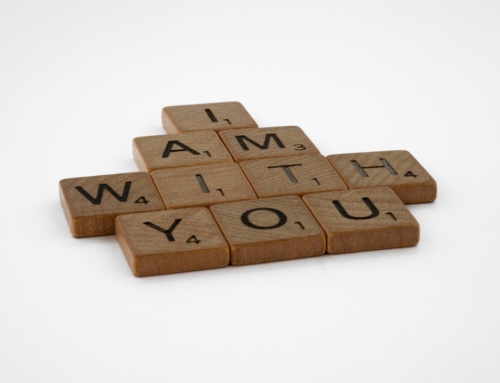Living in the age of instant global communication and interconnected reality is a blessing countless generations of people before us only ever dreamed about. From a small device that fits in my pocket or on my wrist, I can connect with people thousands of miles away, see pictures of them, and hear their voices with perfect clarity.
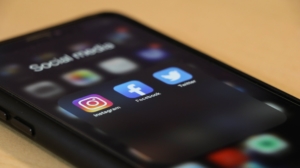 This would have been considered nothing short of magical a century ago. The distant future envisaged by science fiction television shows like Star Trek is very much a reality.
This would have been considered nothing short of magical a century ago. The distant future envisaged by science fiction television shows like Star Trek is very much a reality.
Of course, those science fiction television shows and movies often pointed out that advanced technology, while accomplishing a lot of good is also a pandora’s box of negative consequences. We can send wholesome and encouraging messages instantly, and we can also send harmful words that damage others at the same speed. Wisdom about how we engage with this new frontier of social media can protect us and our loved ones.
Negative Effects of Social Media
Technology isn’t necessarily good or bad; what matters are the people who use it, and the uses they put it to. While this article will focus on the negative effects of social media, it in no way implies that social media is always bad, but only that there are ways in which this gift can be problematic.
FOMO (fear of missing out)
Fear of missing out is something that hits not only young people but grown-ups too. When we see pictures of a party that we weren’t invited or couldn’t go to, or we see someone touting a product that we don’t have and that seems to be making their lives happier, it can generate strong discontent and FOMO. We want a piece of the action and yearn for everything that’s happening on our feeds that we want to be a part of.
A side effect of FOMO is that it can make you miss the things happening right in front of you. It’s not surprising for people to be caught up in drama unfolding online while overlooking what’s happening in their own families.
For young people (and older people are not immune) the draw of the online world can feel more real than what’s going on in their real lives. With eyes on their phone or tablet, the lives right in the same room with them become unreal, while the online world appears to be “real life.”
Isolation
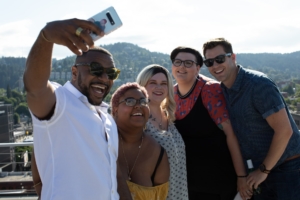 Social media can also generate a sense of isolation. While it’s true that you can find a group for anything under the sun on social media, it’s also true that looking at the lives of others and recognizing the state of yours can generate a sense of isolation.
Social media can also generate a sense of isolation. While it’s true that you can find a group for anything under the sun on social media, it’s also true that looking at the lives of others and recognizing the state of yours can generate a sense of isolation.
If your peers are at a certain stage of life, like having families and settling down, buying their first home, or earning promotions at work, but if you’re not in a similar space it can make you can feel alone and disappointed. The comparison game that social media can produce is potentially very unhealthy.
Unrealistic beauty standards
Part of the social media game is that people put their best foot forward for viewing. Many social media platforms offer tools to filter your appearance by removing any blemishes, adding, or removing curves, and much more. This means that the pictures you see of yourself and other people are in most cases not what those people look like in real life.
But even though we know this to be true, and many people have been exposed for using filters or photoshopping their images while claiming they’d just rolled out of bed and taken a picture.
In the last few years, there’s been an unsettling trend of teens going for elective surgery to look like their filtered online selves or like the people they follow on social media. The unrealistic beauty standards set by social media can be disquieting and disempowering for many who don’t seem to fit the mold. The emotional and mental health toll can be devastating.
Filtered, unreal selves
Connected with the idea of unrealistic beauty standards, another negative effect of social media is that we can create selves that aren’t really for public consumption.
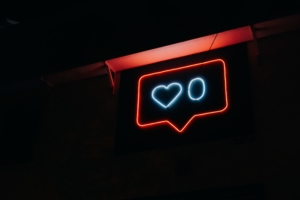 “Dull” and “uninspired” aren’t words that most of us want to have applied to us. The fact that social media is such a public space, moderated by likes, retweets, and shares, can play to the worst parts of ourselves, which include the willingness to do anything to be liked by other people.
“Dull” and “uninspired” aren’t words that most of us want to have applied to us. The fact that social media is such a public space, moderated by likes, retweets, and shares, can play to the worst parts of ourselves, which include the willingness to do anything to be liked by other people.
And so, we like and share popular things, we exaggerate our lives or even endanger ourselves to get that perfect selfie to post online, and we can portray an otherwise fictionalized version of ourselves so that people will comment positively.
Being beholden to our online presence can consume our time and focus better spent on our actual lives and the people around us. Getting “liked” on social media, not to mention consuming bite-sized bits of content, can be addictive.
Many people turn to social media as a cover through which they can interact with the world without things getting too real or messy. Social media can function as a security blanket, and people can use it when nervous or anxious to soothe themselves, and this may substitute for connection with people that are physically in your life.
In-person contact is crucial for mental and emotional wellbeing. Additionally, social media can be a powerful tool for change, but just as easily, we can use social media to be “concerned” without making tangible efforts in our daily lives to make a change. In other words, social media can be used for posturing, to put forward a self that isn’t real to find social acceptance.
Getting in touch with your bad self
Social media has another negative effect on us, which is drawing upon our worst impulses because of the nature of the thing. It’s no surprise that the online world is filled with trolls, and these do their trolling under the guise of anonymity and because of the lack of accountability. Social media can provide a platform for us to express opinions we would never express in person because we know how odious they are.
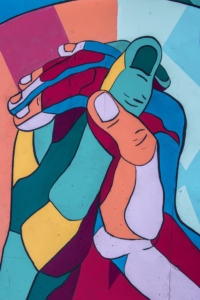 Or it can provide us with a platform where we encounter odious opinions, and we can tacitly agree with them. During the global pandemic, not only did societies have to deal with the disease, but they also had to deal with disinformation and conspiracy theories that spread like wildfire through social media.
Or it can provide us with a platform where we encounter odious opinions, and we can tacitly agree with them. During the global pandemic, not only did societies have to deal with the disease, but they also had to deal with disinformation and conspiracy theories that spread like wildfire through social media.
Since anyone can express a view on social media, it’s easy to buy into false information, but because both legitimate sources of information are presented the same on social media as inaccurate sources of information, both appear to have legitimacy. Lies, rumors, and abuse float freely on social media platforms, and they can cause untold damage that lasts for a lifetime.
Another reality of social media is cyberbullying, and it’s not something that only concerns the person who starts it; often, one person will start it, and then hundreds or thousands of others pile on. Bullying in person can have devastating effects, and that is also the case with cyberbullying via social media.
Conclusion
Social media is a gift, but it can just as easily be a bane that snares your attention and enslaves you to the ecosystem it generates. Social media can be addictive, creating cravings for likes and positive comments on your posts. Easy access to social media can allow us to turn to it to mask other issues we may be facing, such as depression or stress.
Instead of dealing with the underlying issue, social media acts as a temporary refuge that distracts us and helps us to self-soothe. But the relief doesn’t last long, and we crave it once more, driving us back to it again.
If you find that you’re spending more time on social media than you are with the people in your life, losing sleep to be online, comparing yourself unfavorably with others online, or engaging in risky behavior to receive likes on your posts, you may need to take active steps to reduce your time online and find a new area of focus.
When loneliness or boredom pop up, instead of turning immediately to social media, consider inviting a friend over to hang out, or find something active to do with people. Instead of yielding to the despair and FOMO that social media use easily generates, choose to focus on expressing gratitude.
Photos:
“Social Media”, Courtesy of dole777, Unsplash.com, CC0 License; “Group Pic”, Courtesy of AllGo – An App For Plus Size People, Unsplash.com, CC0 License; “Heart – Zero”, Courtesy of Prateek Katyal, Unsplash.com, CC0 License; “Colorful Hands”, Courtesy of Tim Mossholder, Unsplash.com, CC0 License


